Easter Parade (1948)
“Who says I can’t get along without her? See those girls? Any one of them has as much talent as she has.”
|
Synopsis: |
|
Genres, Themes, Actors, and Directors:
Response to Peary’s Review: He notes that there are many “fine musical numbers” — most notably Astaire’s “particularly exciting” solo, ‘Steppin’ Out With My Baby’, in which he “dances in slow motion while the chorus behind him dances at full speed” (impressively ‘daring’ stuff!): and “Ann Miller’s sexy tap solo to ‘Shaking the Blues Away'” (which she unfortunately performed in a great deal of pain, though you’d never know it). He further adds that “the Astaire-Garland numbers are special, too” (‘A Couple of Swells’ remains iconic), and he notes that “the uplifting Irving Berlin score” (fabulous!) is “first-rate and used to perfection” (though he admits to not being “a fan of Peter Lawford’s singing”, a sentiment I can get behind; fortunately, Lawford sings just one short, innocuous song). Peary points out that the “simple storyline… is essentially Pygmalion,” given that it’s about an accomplished professional (in this case, a dancer) who dares his partner that “he can take an unknown non-professional… and make her… a big star”. Despite its familiarity, it’s handled well enough — and with enough humor — that it feels fresh and engaging. Fleshing out this central storyline is a rather pedestrian, if complicated and unrealistic, love quadrangle (Lawford loves Garland at first sight, but Garland secretly loves Astaire, who is still in love with Miller — though God only knows why! — and Miller has a massive crush on Lawford). This angle of the film is best left under-analyzed, as it’s really just a prop for the non-stop songs and dances (that Berlin score!) that thankfully dominate the screentime. Redeeming Qualities and Moments:
Must See? Categories
Links: |
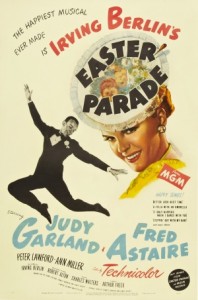
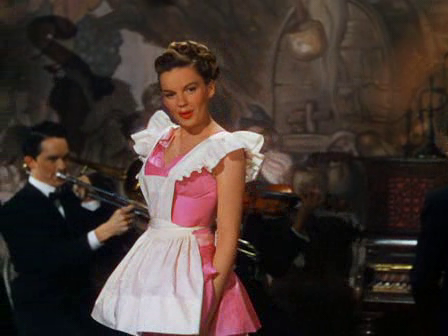
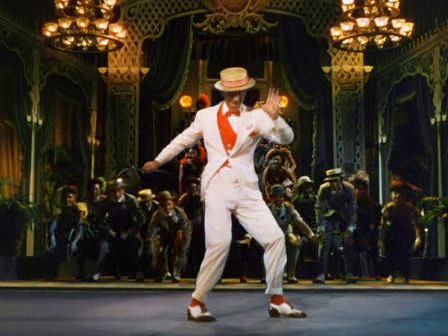
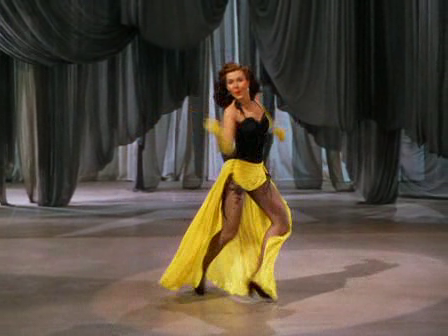
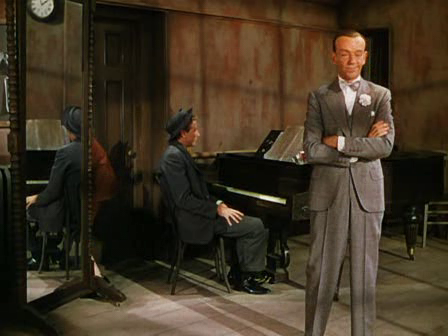
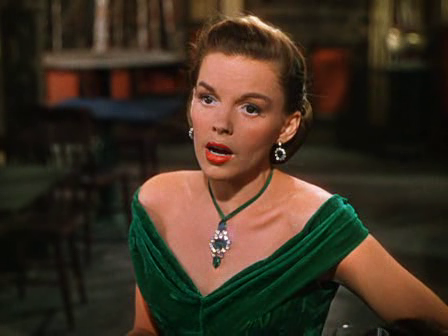

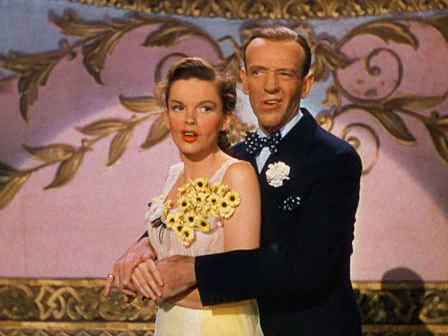
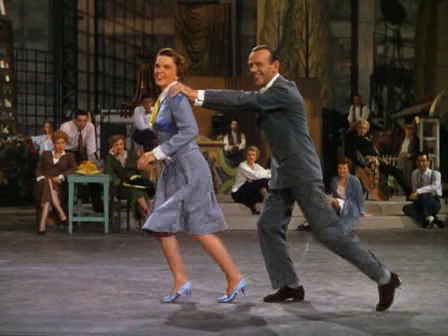
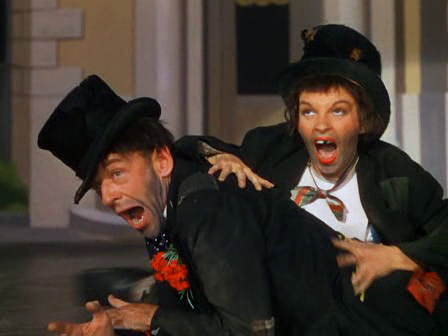
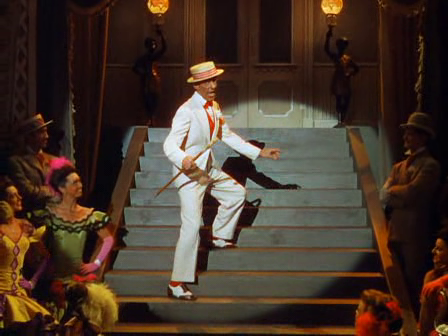
One thought on “Easter Parade (1948)”
An absolute must! If you can put the ‘prop’ plot aside (and you really must, even if it’s not particularly a problem), this is an ebullient concoction of top-drawer entertainment!
I had not seen this in many years, but what a joy to return to it. It’s true – the songs do really carry the day, and what a day! ‘EP’ is simply jam-packed with memorable Berlin tunes – and what’s amazing about that is the breadth of variety to be found; a song for just about every mood there is (Garland even gets a kind of torch song with ‘Better Luck Next Time’). I esp. like the flat-out funny ‘Snookey Ookums’. (‘A Couple of Swells’ may not be as biting, but is also extremely clever.) ‘Drum Crazy’ is charmingly joyous. ‘It Only Happens When I Dance With You’ is for every single hopeless romantic watching. Listen to Garland’s laughter in the dance segment of the bouncy ‘I Love a Piano’ – to me, it seems to differ from much of her laughter found in various other films; she seems genuinely transported. ‘Shakin’ The Blues Away’ spells Pizazz, thanks to the one and only Ann Miller! And ‘Steppin’ Out With My Baby’ is sheer heaven! (Yes, Astaire in slo-mo in front makes for a mesmerizing visual.) [My only personal reservation is ‘Girl on the Magazine Cover’. It’s an ok song of its type – and is splendidly staged – but is probably the one occasion that does little for me in the score.]
Although the leads perform flawlessly in ensemble style (I don’t even think Lawford’s singing is all that annoying, just minor), so much of the credit in this film must go to choreographer Robert Alton, a real dance visionary – who clearly influenced Bob Fosse. (‘Steppin Out’, in fact, no doubt gave Fosse – if you’ll pardon the expression – a boner. Remember, I *am* talking about Fosse here, so…I merely mean one can see how he could have related to it in terms of style.) One could watch ‘EP’ over and over just to savor Alton’s collaborative process with Astaire. There are endless moves to marvel at – and I’m not even a dance enthusiast, particularly. But when I see dance that’s electric – and this is it – then I love taking notice. This is the kind of choreography that has real vocabulary and, by itself, tells stories. Just about every single song lyric has been interpreted in visual terms. It’s stunning work!
(Alton left the world early, at age 51 – kidney trouble.)
Co-writing with top-credited Sidney Sheldon, Frances Goodrich and Albert Hackett seem to reveal less flair here than in their work on ‘The Pirate’ (released the same year). The bulk of the dialogue doesn’t really seem their style (i.e., Garland going on about how she can’t tell her right foot from her left easily comes off as uncharacteristically awkward) but *somebody* must have been taking care of the construction end of things: fitting all of those marvelous songs coherently into the thin story. Even if the story isn’t the film’s strength, it doesn’t need to be and it’s certainly serviceable.
Overall, a real gem, this one. The only pairing of Astaire and Garland – and a Winner!